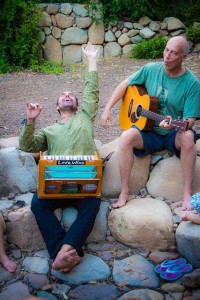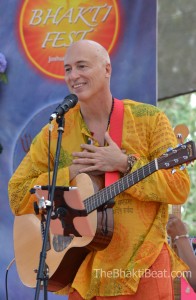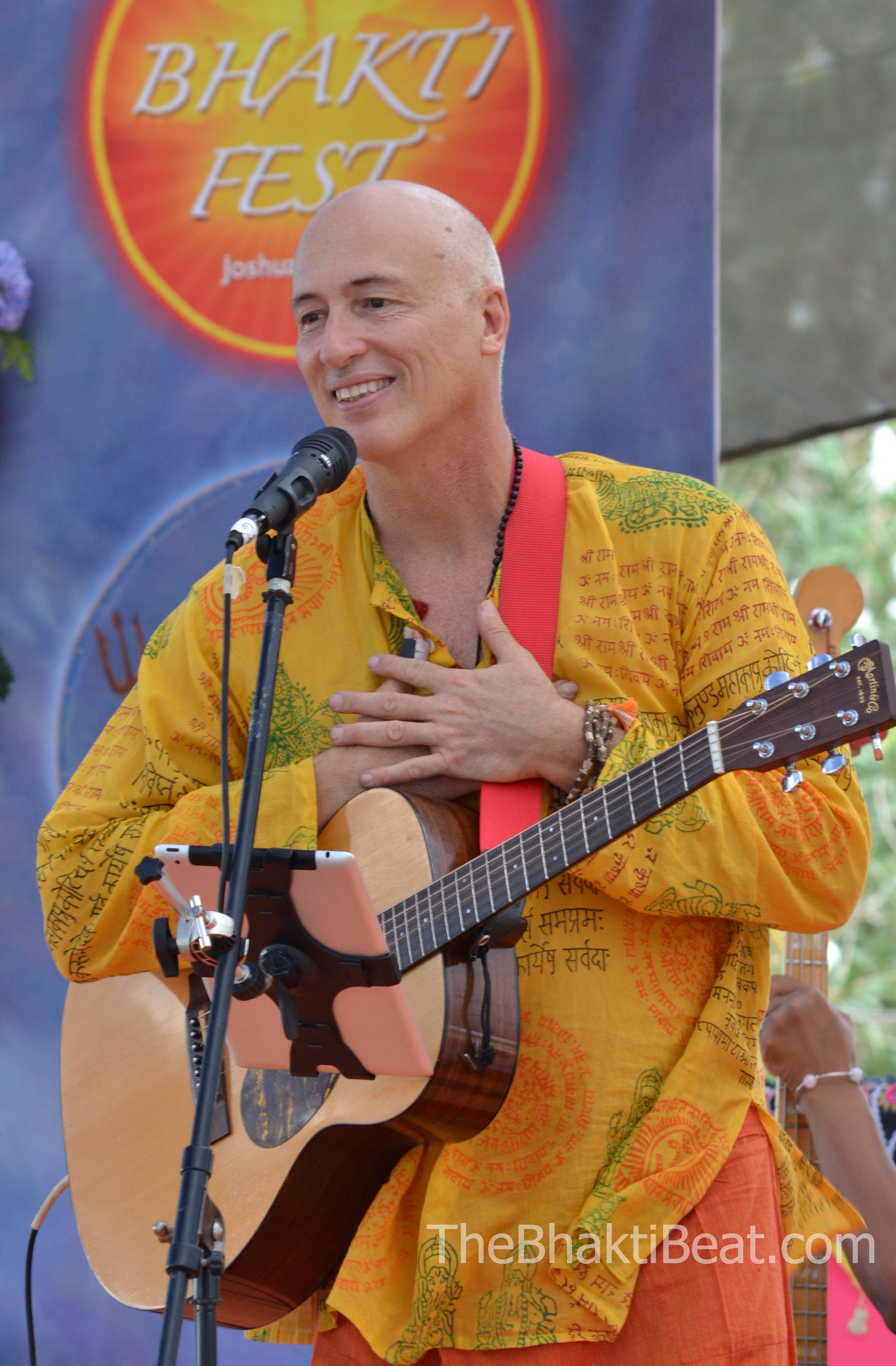 Project: Full-length Studio-Recorded CD
Fundraising Goal: $12,000
Deadline: April 30, 2014 @ 11:59 p.m. PT
Contribute Here NOW!
Ed. Note: This is part of our ongoing series on Crowdfunding Kirtan, in which fans and friends contribute money for new recording projects in exchange for “perks” ranging from free downloads to private concerts. The trend has grown as record labels have cut back and artists have to fund projects themselves.
Project: Full-length Studio-Recorded CD
Fundraising Goal: $12,000
Deadline: April 30, 2014 @ 11:59 p.m. PT
Contribute Here NOW!
Ed. Note: This is part of our ongoing series on Crowdfunding Kirtan, in which fans and friends contribute money for new recording projects in exchange for “perks” ranging from free downloads to private concerts. The trend has grown as record labels have cut back and artists have to fund projects themselves.
The Artist
Is it us, or is Jim Beckwith showing up everywhere these days? He is one of those guys who seems to always be on stage at festivals like Bhakti Fest, surrounded by a pile of instruments from shakers to sitar and diligently backing up the lead wallah in whatever way is needed. A “sound colorist,” Beckwith calls himself — someone who can pick up whatever instrument is necessary to add just the right shade of acoustic toning to support the flow of the music at that moment. Sounds right to us.
That said, Beckwith is a vocalist first and foremost. In an interview with The Bhakti Beat from his car, dodging tumbleweeds enroute from his home in Ojai, Calif. to play at a retreat with Saul David Raye in Denver, he said, without hesitation: “I am a singer,” when asked which, among the many he proffers, is his instrument of choice. Singing, he said, “is the passion at my core. I only started playing any instrument to support the singing.”
The passion shows. Beckwith has a vocal range that would make an opera singer do a double-take. (In fact, Placido Domingo, Jr., the opera singer and son of the famed tenor and conductor, apparently did just that, telling Beckwith he had a voice like “a refined Sting.”) He can soar to lilting heights or ground you like a bass line. He is completely self-taught; his formal vocal training consists of a single voice class in college. “I always had some fear around taking formal vocal lessons,” he told The Bhakti Beat. “I guess I was afraid someone would try to tell me how to sing.”

Orchestrating a Mood
All of those instruments — sitar included — have came in handy as he has moved into more fulfilling musical roles. Around 2005, a chance encounter delivering a sound system to Jai Uttal ended up with a weekend-long gig playing percussion for the bhakti master, whose regular tablist, Daniel Paul, was otherwise engaged. “I was instantly in love,” Beckwith says. “I wanted to follow him everywhere — but he had Daniel Paul!” Instead, Beckwith stayed in Florida and started picking up gigs with the iconic Bhagavan Das, who gave Beckwith his spiritual name of Hanuman Das.
Over the last 10 years or so, Beckwith has earned a reputation for supporting the flow of energy in yoga classes, choosing from his toolkit of music-making devices to create the right mood and enhance the dance of asana. He was doing “live-music yoga” before everybody was doing live-music yoga; at the time he was pioneering the practice in the Eastern U.S., yoga-with-a-band was virtually unheard of outside of the trend-setting L.A. yoga scene. He’s carved out quite a little niche for himself in the genre (can you call it a genre?), traveling to yoga conferences nationwide, and has become a regular fixture at close friend and yogi superstar Saul David Raye’s retreats and workshops.

The Project: First Chant CD ‘Hybrid’
Recently, Beckwith has stepped into the center of the kirtan stage to take the lead call himself. His debut set at Bhakti Fest — a milestone that has become somewhat of a marker of a kirtan wallah’s coming-of-age — was last fall on the Joshua Tree festival’s Hanuman stage. In the heat of the blazing afternoon sun in the high desert, he and nine or so close musician friends stepped up and created a buzz among the crowd of hard-core yogi-chanters who turned out for the set. Saul David Raye introduced Beckwith warmly and stepped in to accompany his friend on the harmonium for the final song.
This will be Beckwith’s seventh CD and the first one focused on chant. But don’t expect it to be traditional call-and-response kirtan. Rather, it will be what he calls a “hybrid,” a reflection of his evolving style, which mixes English lyrics culled from his songwriting roots with traditional mantras — hopefully in way that makes sense, he said with a chuckle.
The CD, and his emerging role of songwriter-meets-wallah, is all part of the evolution of Jim Beckwith. “When I first started getting into kirtan, I wasn’t sure what my path would be,” he said. “I felt a little uncomfortable about how to be myself in it. Could I do my lyrical content in the context of kirtan?”
He said watching people such as David Newman and Girish combine their singer/songwriting sensibilities with the mantras gave him confidence to pursue the direction his intuition was pointing him in. “For so many years, I was just kind of dabbling in music without really knowing where I was going with it,” he told The Bhakti Beat. “Now I feel like I’m really stepping into my path. That is such a relief. It’s been a process of surrender and getting clear on what my ‘thing’ is.”
 The yet-to-be-named hybrid album is already in progress. Beckwith has selected the songs and has begun to lay down instrumentals on each track. Backing him up will be familiar names in the kirtan world, including Jennifer Sparks on vocals and, on one song at least, harp; David Watts on bass; Matthew Hufschmidt on drums, and others to be determined — most likely including Brenda McMorrow and Benjy Wertheimer, Beckwith said. A summer 2014 release is anticipated.
The yet-to-be-named hybrid album is already in progress. Beckwith has selected the songs and has begun to lay down instrumentals on each track. Backing him up will be familiar names in the kirtan world, including Jennifer Sparks on vocals and, on one song at least, harp; David Watts on bass; Matthew Hufschmidt on drums, and others to be determined — most likely including Brenda McMorrow and Benjy Wertheimer, Beckwith said. A summer 2014 release is anticipated.








